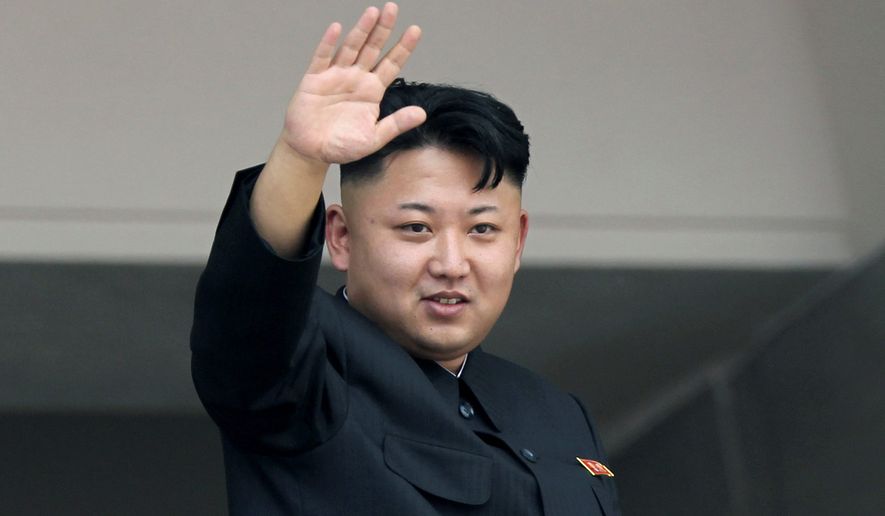OPINION:
The world’s attention is focused on the chaos of the Middle East, but a time bomb is ticking in northeast Asia. Mysterious, heavily armed North Korea is a threat that at the moment seems out of sight, but it cannot be out of mind.
The focus of the danger Pyongyang poses for its neighbors and the rest of the world is on Kim Jong-un, the 32-year-old third generation of the Kim dynasty that rules North Korea. Mr. Kim has neither the experience nor the training to be a reliable leader armed with intercontinental weapons of mass destruction. He was the second or third choice of his father, Kim Jong-il, to succeed him. It is not clear — nothing in North Korea is — why his elder brothers gave up their opportunity to mount the throne. Perhaps they wanted to lead less onerous and less dangerous lives. One of them may be standing by, tutored by China, as a replacement, if and when.
The notorious secrecy of the regime was revealed again the other day with the announcement that young Mr. Kim will not attend the Russian ceremonies on May 9 to celebrate the Allied victory in World War II. Mr. Kim told friends he didn’t want to participate in “a freak show” that Russia’s old allies won’t attend because Vladimir Putin is making such a hash of Ukraine. The Moscow celebration is dear to Russian hearts, in remembrance of the 20 million Russians who died defending the motherland from Hitler’s Nazi horde.
When Mr. Kim changed his mind, and said he would attend after all, Moscow described the change of heart as “related to [North] Korea’s internal affairs.” No doubt. North Korea had never said anything about the celebration, and the usual readers of the tea leaves speculated that Mr. Kim, or whoever is running things, wants to use a Moscow visit to move North Korea and Russia closer together, to play Russia as a counterweight to China. Mr. Kim’s grandfather, Kim Il-sung, successfully used that strategy to extract money and arms from both Stalin and Mao Zedong.
But those “internal affairs” could be something more sinister and more spectacular. Fifteen senior officials have been executed this year in Pyongyang. That followed the disappearance last year of Mr. Kim’s uncle and his formidable aunt, said to have been among his chief advisers.
The Moscow trip would have been Kim’s international debut. He apparently doesn’t like to fly, and has stayed close to home. Asia hands are perplexed that he would visit Moscow before visiting Beijing, which has kept the 25 million North Koreans from starving while the government diverts attention and resources to its enormous and expensive arms projects.
The Chinese in Beijing are North Korea’s only friends. China tries to shield the North Koreans from the continual criticism and sanctions of the international community, even at the United Nations, which has remarkable forbearance for regimes of rogues and despots. China fears a regime collapse would send a flood of refugees into northwest China, where 2 million ethnic Koreans keep its border with Manchurian an open wound.
More important, a collapse of the government in Pyongyang might reunite the two Koreas, and would enable a new government to cultivate strong ties with the United States and Japan. The Korean War erupted in the summer of 1950 and China entered the war on fears that it might spill over into China. The war subsided into a truce, which still holds.
The fear now is that greatest of nightmares — a fragile and unstable regime with an unstable hand on weapons of nuclear destruction.




Please read our comment policy before commenting.